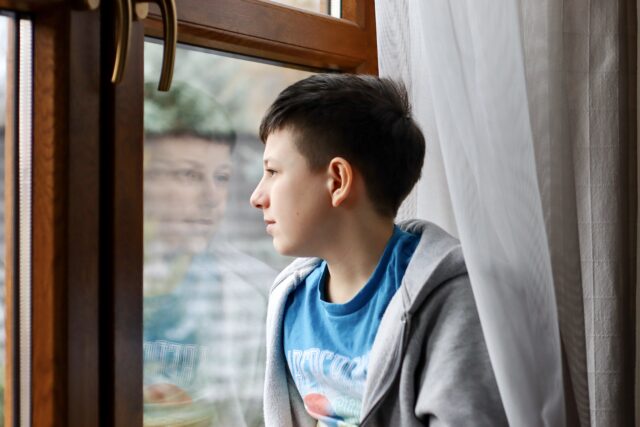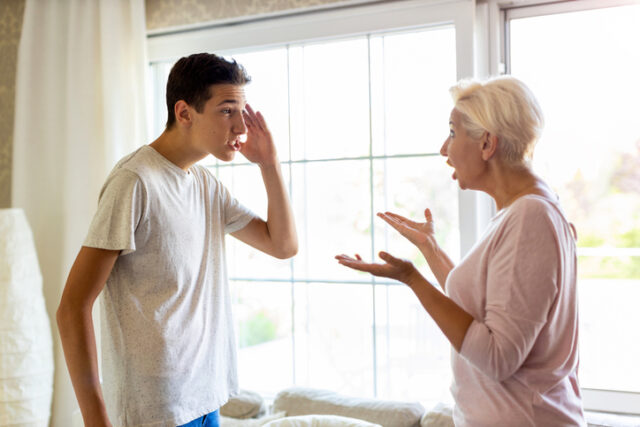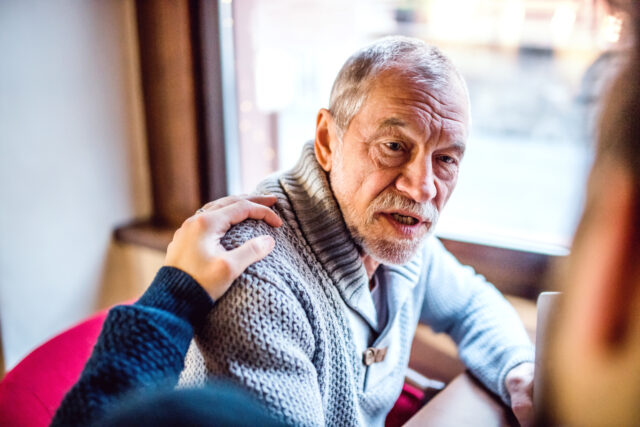Most people aren’t just born lacking empathy.

It’s usually something that’s shaped early on in a person—by what was said, what wasn’t, what they felt safe showing, or what they were punished for feeling. These childhood experiences tend to leave a lasting mark, leading to a lack of understanding of and feeling for other people. Though it’s not a hard and fast rule, here are some common experiences that tend to make people less empathetic.
1. They were made to feel embarrassed for having feelings.

If crying got them laughed at or opening up led to a sarcastic comment, they likely learned to shut down early. After a while, they start seeing emotions, especially other people’s, as something awkward or even annoying. When your own feelings were dismissed or made fun of, it’s hard to grow up thinking other people’s emotions deserve care. It’s not cruelty; it’s just what they had to do to protect themselves.
2. They grew up in a house where winning mattered more than connecting.

Some families treat life like a scoreboard. Praise is for achievements, and weakness isn’t really tolerated. If you didn’t bring home good grades or do something impressive, it was met with silence or disappointment. That kind of upbringing teaches people to measure worth by outcomes, not by how someone’s doing emotionally. As adults, they often judge quickly and struggle to slow down long enough to really care.
3. They had to be the adult in the house.

When a kid has to manage a parent’s moods, comfort their anxieties, or hold things together emotionally, their own needs take a backseat fast. They become the one doing the caretaking before they’ve even figured themselves out. That emotional overload can lead to burnout before adulthood even starts. After years of not being looked after themselves, it’s not surprising if empathy feels like a job they’ve already done too much of.
4. Their vulnerability was used against them.

For some kids, opening up didn’t lead to connection—it led to consequences. Maybe something they said got repeated in front of other people. Maybe they were mocked or punished after being honest. So they learned to keep things close. And later in life, when someone else starts opening up, they instinctively recoil—not because they don’t care, but because feelings feel like a trap.
5. Nobody helped them name what they were feeling.

Some households never taught emotional language. There was no “I feel sad” or “I’m overwhelmed”—just anger, silence, or pushing through. So these kids grew up not really knowing how to explain what was going on inside. As adults, they might seem emotionally flat or just out of sync. However, it’s usually not a lack of empathy—it’s just that they never learned how to tune into feelings in the first place, so they miss other people’s too.
6. They were told they were overreacting—constantly.

If every upset was labelled “dramatic” or “too sensitive,” they probably learned to shut things down fast. As time goes on, that reaction becomes automatic, not just with themselves, but with everyone else too. That kind of early dismissal makes it really hard to hold space for other people’s emotions. If your own never felt valid, someone else’s will probably feel like a burden.
7. Love was something they had to earn.

In some families, affection wasn’t freely given—it was conditional. You had to act a certain way, achieve something, or suppress parts of yourself to get it. The second you stepped out of line, the warmth disappeared. People raised like this often grow up guarded. They don’t do emotions easily because openness never felt safe. So when someone else starts sharing, they might freeze or shut down, even if they care deep down.
8. They were praised for being “so mature.”

Being called mature sounds like a compliment, but for a lot of kids, it meant they didn’t ask for anything. They were the ones who didn’t make a fuss, didn’t cry, didn’t need much—because they learned not to. It trains people to disconnect. And as adults, they might seem emotionally distant—not because they don’t have feelings, but because they’ve spent their whole lives being told not to show them.
9. They thought emotional neglect was just normal.

Not everyone grows up in chaos—some grow up in coldness. If no one ever asked how they were doing, showed affection, or acknowledged their emotional world, they just assumed that’s how life is. Later, when they see people being expressive or sensitive, it doesn’t compute. They’re not trying to be harsh—it just wasn’t how they were wired. Empathy wasn’t part of the model they were given.
10. Everything in their house was a competition.

Some kids grow up in households where nothing is ever just… enough. Someone always did better. Someone else always had it worse. Every experience turned into a comparison, not a connection. That can lead to adults who struggle to feel happy for other people, or to really sit with someone who’s struggling. Empathy feels like something they were never given space for, because the scoreboard always got in the way.
11. They were constantly compared to other people.

If they were always hearing, “Why can’t you be more like your brother?” or “Look how well your cousin is doing,” they likely started resenting both themselves and other people. Being compared like that doesn’t teach empathy—it teaches measurement. As adults, they often view everyone else’s feelings as competition or threat, not something to care about.
12. Their parents made everything about themselves.

When you grow up around emotionally immature or self-centred adults, you don’t get the space to explore your own feelings—because every conversation circles back to them. That sets a pattern. In adulthood, they might default to making everything about their own experience—not to be rude, but because that’s how communication always worked growing up.
13. Apologies didn’t exist.

If no one in the house ever said, “I’m sorry,” it teaches a kid that emotional repair isn’t something you do—it’s something you avoid or ignore. There’s no model for what accountability looks like, so when someone else is hurting, they freeze. They get defensive. They change the subject. It’s not that they don’t care—it’s that they don’t know how to handle someone else’s pain, especially if they’re the cause of it.
14. Emotional guilt was a regular tool.

In some families, guilt and shame were how people got what they wanted. “After all I’ve done for you…” or “I guess I just don’t matter then.” It wasn’t direct, but it left a mark. This teaches people to see emotions as leverage—not connection. So later in life, they might avoid vulnerability or use it manipulatively. It’s not necessarily evil—it’s survival mode dressed up as normal behaviour.
15. Showing emotion was seen as weakness.

Especially in households shaped by tough love or older generational values, emotions were seen as a liability. Crying was weak. Sensitivity was a flaw. So kids toughened up—not because they wanted to, but because they had to. Now, those same adults might scoff at people being emotional, or feel deeply uncomfortable when other people get vulnerable. They’re not trying to be cold; it just goes against everything they were taught was safe.
16. No one ever asked them how they were really doing.

Sometimes, the damage isn’t dramatic—it’s quiet. If no one ever checked in emotionally, if feelings weren’t part of the conversation, those muscles just never formed. And without practice, empathy doesn’t grow. These are the people who often look fine on the outside but struggle to connect deeply. Not because they don’t want to—but because no one ever showed them how.




